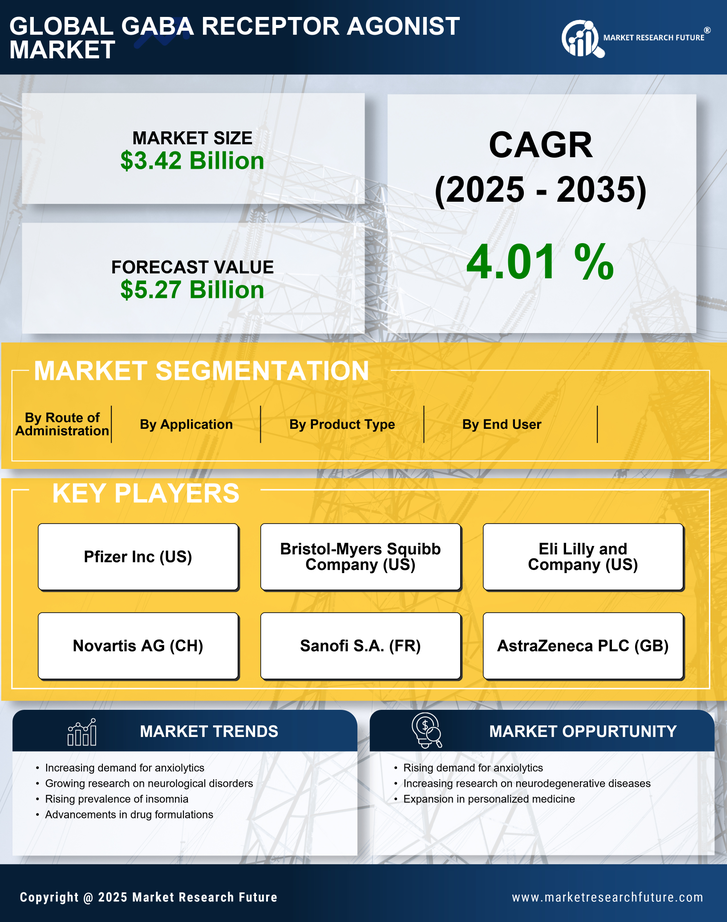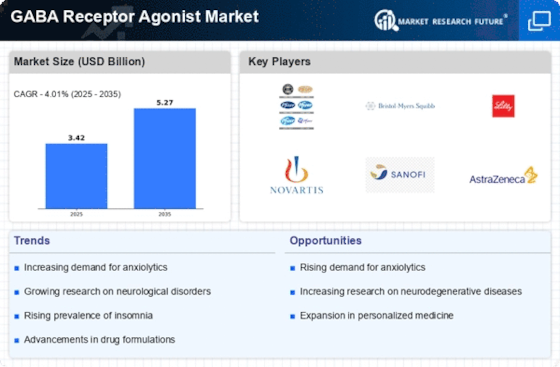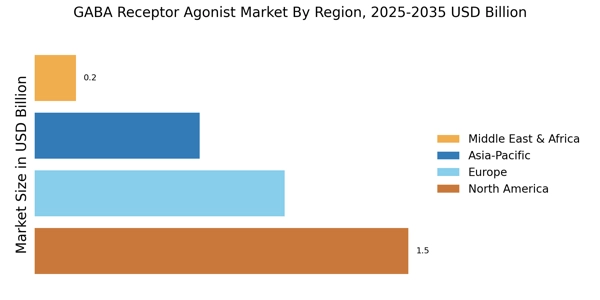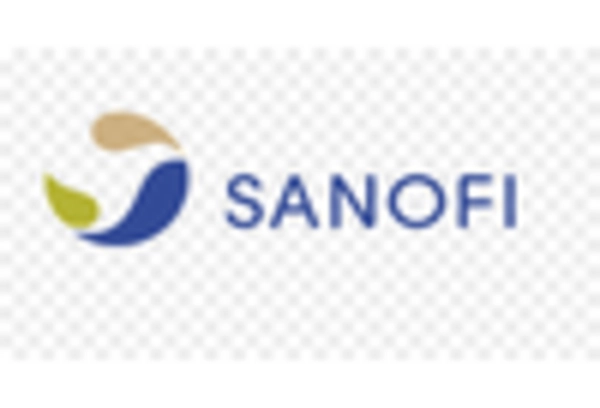Growing Awareness of Mental Health
There is a notable increase in awareness surrounding mental health issues, which is driving the GABA Receptor Agonist Market. Public campaigns and educational initiatives are helping to destigmatize mental health conditions, encouraging individuals to seek treatment. This heightened awareness is reflected in the rising number of prescriptions for GABA receptor agonists, as patients and healthcare providers recognize their potential benefits. Market data suggests that the mental health treatment sector is projected to grow at a compound annual growth rate of over 7% in the coming years, further emphasizing the role of GABA receptor agonists in addressing these needs.
Advancements in Pharmaceutical Research
Innovations in pharmaceutical research are significantly influencing the GABA Receptor Agonist Market. The development of novel compounds that target GABA receptors is expanding the therapeutic landscape. Recent studies have indicated that new formulations may enhance efficacy and reduce side effects, making them more appealing to both patients and healthcare providers. Furthermore, the integration of advanced technologies such as artificial intelligence in drug discovery is streamlining the identification of potential GABA receptor agonists. This could lead to a surge in new products entering the market, thereby stimulating growth within the GABA Receptor Agonist Market.
Regulatory Support for Mental Health Therapies
Regulatory bodies are increasingly supportive of new therapies aimed at treating mental health conditions, which is beneficial for the GABA Receptor Agonist Market. Recent approvals of innovative GABA receptor agonists by regulatory agencies indicate a favorable environment for drug development. This regulatory support not only facilitates faster market entry for new products but also encourages investment in research and development. As more GABA receptor agonists receive approval, the market is likely to expand, providing patients with a broader range of treatment options and enhancing the overall growth of the GABA Receptor Agonist Market.
Increasing Prevalence of Neurological Disorders
The rising incidence of neurological disorders such as anxiety, depression, and epilepsy is a primary driver for the GABA Receptor Agonist Market. As these conditions become more prevalent, the demand for effective treatments is escalating. According to recent estimates, approximately 1 in 5 adults experience mental illness each year, which underscores the urgent need for therapeutic options. GABA receptor agonists, known for their calming effects on the nervous system, are increasingly being recognized as viable treatment options. This trend is likely to continue, as healthcare providers seek to address the growing burden of neurological disorders, thereby propelling the GABA Receptor Agonist Market forward.
Rising Demand for Non-Pharmacological Treatments
The growing interest in non-pharmacological treatments for mental health issues is influencing the GABA Receptor Agonist Market. While traditional pharmacological approaches remain essential, there is an increasing recognition of the importance of holistic treatment strategies. This trend may lead to the development of combination therapies that incorporate GABA receptor agonists alongside behavioral therapies. As patients seek comprehensive treatment plans, the demand for GABA receptor agonists may rise, particularly in conjunction with non-pharmacological interventions. This evolving landscape presents opportunities for innovation within the GABA Receptor Agonist Market.


















